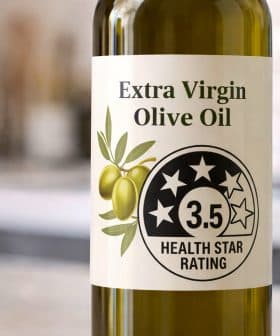Med Diet May Lower Stroke Risk in Women
A new study in the U.K. suggests the Mediterranean diet may be particularly protective of stroke in women over 40, regardless of whether they take hormone replacement therapy or have experienced menopause.
A study found that following the Mediterranean diet can lower stroke risk by 22% in women over 40, with researchers attributing the protective effects to the synergistic components of the diet. The study, involving over 23,000 adults, showed a 17% decrease in stroke risk for all adults and a 6% reduction in men, suggesting the diet’s potential benefits for both genders.
Following the nutrition-dense Mediterranean diet (MedDiet) may lower stroke risk, especially in women. One of the largest and longest-running studies on the subject found the eating plan was linked to a 22 percent lower incidence in women over age 40.
It is unclear why we found differences between women and men, but it could be that components of the diet may influence men differently than women.
According to the researchers, strokes cause 6.34 million deaths worldwide every year. However, 90 percent of cases are preventable with lifestyle modifications that include eating a healthy diet. Instead of the protection coming from one individual food, it’s likely due to synergistic effects of components in the entire diet, they said.
Key elements of the MedDiet consist of generous amounts of fruits, vegetables, olive oil, beans, whole grains, nuts, fish and potatoes. The eating plan also involves a lower consumption of dairy products, sugar and meat.
Scientists from the Universities of Aberdeen, East Anglia and Cambridge worked together in the research. The participants were 23,232 adults between the age of 40 and 77 who were enrolled in the EPIC-Norfolk study. For 17 years, the research team monitored the individuals’ diets and compared the stroke risk of those who adhered closely to the MedDiet with those who didn’t follow it as well.
See Also:Articles on the Mediterranean dietData showed the participants who followed the MedDiet the most closely experienced a decreased onset of stroke. The reduction was 22 percent in women, 17 percent in all adults and 6 percent in men. Researchers noted that the smaller benefit in men could be due to chance, so it wasn’t considered significant.
“It is unclear why we found differences between women and men, but it could be that components of the diet may influence men differently than women,” said Ailsa Welch, lead author from the University of East Anglia, United Kingdom. “We are also aware that different sub-types of stroke may differ between genders. Our study was too small to test for this, but both possibilities deserve further study in the future.”
Moreover, participants at a high risk of a cardiovascular event who followed the MedDiet to any degree had a 13 percent reduction in stroke risk. The advantage seemed to include adults at a low risk of a cardiovascular event, although the possibility that this was due to chance can’t be ruled out.
The researchers noted that while the findings were driven by the apparent benefit in women, they have implications for stroke prevention in both genders. The study was published in the American Heart Association’s journal Stroke.
In an interview with Olive Oil Times, biochemist Barry Sears, author of the Zone Diet book series, explained how the diet relates to the stroke risk protection.
“Stroke prevention is a consequence of the reduction of inflammation that produces clot formation in the cerebral circulation, which causes ischemic stroke. It also is due to decreasing hypertension that leads to a bursting of the cerebral arteries supplying circulation to the brain, which causes hemorrhagic stroke,” he said.
“A true MedDiet is an anti-inflammatory diet that reduces clot formation and lowers blood pressure.”









